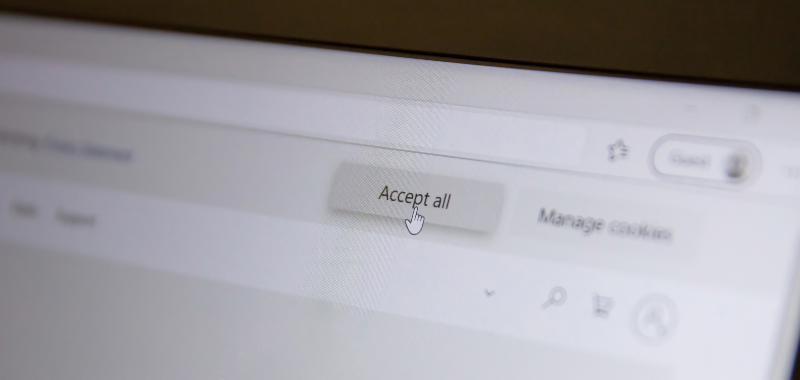
Updated Guide on the use of cookies comes into effect
The updated Guide on the use of cookies comes into effect on January 11, 2024. In February 2023, the European Data Protection Committee (EDPC) introduced the long-awaited Guidelines 03/2022 on deceptive patterns in social networks, setting new standards in online world regulation.
These guidelines have recently been incorporated into the updated version of the Cookie Guide (hereinafter referred to as “Guide”), which, in addition to the measures already included in its previous editions, includes substantial changes affecting how websites manage cookies.
The Guide on the use of cookies emphasizes the importance of transparency in cookie-related actions. Likewise, consent is established as the basis for compliance with regulations. Therefore, according to the new guidelines, options to accept or reject cookies must be prominently displayed.
Additionally, both actions must be placed at the same level, ensuring that rejecting cookies is not more complicated than accepting them. The Guide also provides specific examples of how these options should be presented, including considerations regarding color, size, and position on the interface.
The Guide on the use of cookies also reminds that the data controller must make reasonable efforts to verify that consent for the processing of minors under fourteen (14) years old was given by the holder of parental responsibility. Therefore, websites specifically targeted at minors must take additional precautions, such as using simpler and clearer language.
Use of cookies: key aspects
A key aspect addressed by the Guide concerns customization cookies. When users make direct decisions about these cookies, such as selecting the language of the website or the currency for transactions, they are considered technical cookies and do not require consent.
However, if the publisher makes decisions about customization cookies based on user information, they must inform clearly and offer the option to explicitly accept or reject these cookies.
Another significant modification refers to cookie walls. The new version of the Guide establishes that consent cannot be conditioned on access to specific services or functions.
Although the non-acceptance of cookies could limit access or use of the service, publishers must inform the user and provide an alternative access without requiring the use of cookies. It is crucial to note that this alternative may not necessarily be free, according to the clarifications in the Guide.
Finally, as a good practice when it comes to the use of cookies, it is recommended to enable a floating button on the website to access the cookie configuration panel at any time. This way, users can change their consent according to their interests in an intuitive and simple manner, thus fulfilling the ultimate goal of the Guide.
In this regard, the Guide emphasizes that if the publisher’s cookie management or configuration system does not allow avoiding the use of third-party cookies once accepted by the user, the data controller must provide information about the tools provided by the browser and third parties.
It should be noted that if the user accepts third-party cookies and later wishes to delete them, they must do so from their own browser or the system enabled by third parties for this purpose.
It is essential for entities affected by these regulations to implement the new criteria before January 11, 2024. In this case, there has been a six-month transitional period to adapt to the necessary changes in cookie management and ensure compliance with the latest guidelines from the EDPC.
These measures aim to strengthen privacy protection on the network and enhance the user experience in cookie-related decision-making.
At Letslaw, we are experts in advising on Digital Law and legal texts for the website, so we will be happy to help you comply with the regulations. Contact our team of Data Protection lawyers.

Letslaw es una firma de abogados internacionales especializada en el derecho de los negocios.







